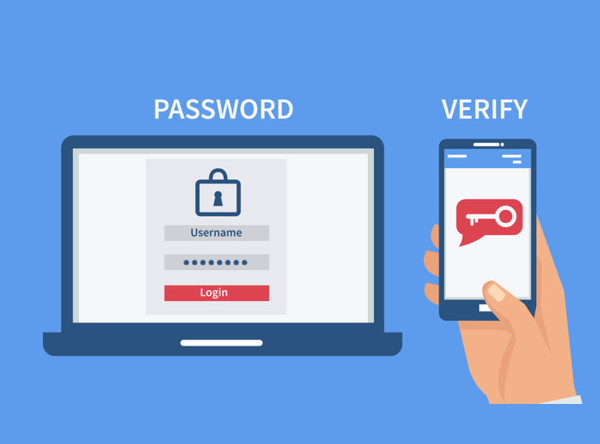In today’s landscape, organizational boundaries are being realigned and are continuously shifting to new directions to meet emerging realities. Old alliances and ways of doing things are being disrupted because the world, which is becoming more complex and open to complications, demands it.
The rate of change is incredibly rapid and dynamic, as new lines are consistently being drawn and old ones are fading. The speed, rules and limits of our interconnected world are being defined by the impactful interplay of culture, technology and politics, which are moulding and reshaping industries and professions. The shockwaves are being felt by all, especially by those who practice law and are in the legal field.
Need IT Support?
Are you a Toronto lawyer or Toronto law office that is looking for IT Support / IT Services? Do not hesitate to call Fidelity IT Solutions. We provide law firm IT support and focus on bringing the right information technology solutions for law firms. We offer support 24 hours a day, 7 days a week in the Greater Toronto Area and surrounding Ontario communities and Southern California. Our Toronto number is 647.693.9124.

The legal field and other industries are responsible for rising to the challenge and transition to align themselves with new realities. One of the greatest drivers of change, has been information technology (IT) and subsequent law firm IT support by outsourced IT departments. One of the most historically resistant and stubborn-to-change industries, and abound to traditional attitude, has been the legal field. In IT and technology, changes are welcomed. In the legal field, traditions are to be respected. The stark dichotomy and gap between the two seems very deeply entrenched and is irreconcilable. While divergence and tension between the two is to be expected, their relationship has greatly evolved.
It has become so intertwined and overlaps in so many critical areas that a Venn diagram of IT and the legal profession would resemble the two shadowing one another. The legal profession – with the influx of technological advances and the IT services that has procured them – has been recalibrated. This article will examine how IT innovations have reformed the legal field and how legal practices have been transformed and the management of law firms has changed, as well as how it has assisted lawyer and client relationship.
The first step is to put into perspective the ubiquitous nature of technological devices, whereby mobile devices, wireless and wired networks, and cloud computing, cannot be isolated from day-to-day legal work. As a result of the explosion of IT service tools, telecommunication is rapidly rising amongst lawyers and those working in law firms. The footprint of the modern-day law firm is diminishing and some are even going as far as transforming traditional physical offices into virtual offices. On the other side of the equation, technological advancements have also reshaped client demands, wherein customers demand that lawyers are always accessible to keep them up-to-date and answer their inquiries, whenever and wherever.
Those caught up in emergency situations will always need to access lawyers or law offices. This is made possible by a heavyweight, bolstered IT service system – backed by law firm IT support teams like Fidelity IT Solutions – that allows channels to speed-up communication between lawyers and client. Microsoft Outlook® email systems must be running at all times, and instant messaging channels like Microsoft Lync® – both of these software tools are part of Microsoft Office 365 – have become so critical for client communications, you would be hard-pressed to find a lawyer who can function as efficiently without these empowering tools that enhance client communications. Client demands that their attorneys are available 24 hours a day, 7 days a week and can be accessed because they need to stay up-to-date on their cases.
Customer demands have been a key driver and have been the main reason why lawyers can no longer avoid not having an outsourced IT services provider to manage their IT needs. As a result, tech-savvy and progressive law firms are looking to outsourced IT help to create protected portals and shared spaces to simplify communication. A secure technology ecosystem has not only become highly desirable to law firms but necessary in order to protect the integrity of sensitive information and cases that comes across their desks.
The changes in the demands of expectations, from the consumer side, require new, innovative solutions. Lawyers need to manage growing data and, at the same time, safeguard the confidences of their clients. Lawyers and legal professionals, such as paralegals, are constantly looking to next-generation technologies to keep up with their clients and prospective customer’s demands. What is the best way to know which IT tools to adopt and integrate into your law office? Ask and survey your clients and see what you did well, what needs improvement and look to see how IT and technology can help strengthen your weak points. By having a client-centric operations, lawyers can look to outsourced IT departments to drive client-focused initiatives.
The boom of social media has also become highly important for lawyers to discuss legal issues and insights on hot-button topics that are trending in the public sphere. Most high-profile or well-known lawyers are very active on Twitter, Facebook or LinkedIn, and these mediums have become widely accepted in the legal community and have become mainstream. A one-man firm can gain prominence through smart social media strategies. The democratization of media has meant that lawyers, judges and legal personnel can publicize their ideas and thoughts, from all sides of the sociopolitical spectrum, without fearing major backlash. The drawback and concerns with social media, for many lawyers, is that they have privacy concerns, where information is unintentionally disclosed to outside parties who may use it against them, in form or another.
Looking it at from another angle in how IT has helped in becoming a great enabler and equalizer, is that when supported and assisted by a value-added IT service provider, small law firms can stamp their presence online in a big way and can appear well-qualified, well-represented and more-than-able to handle cases that come their way. A small law firm can equal the playing field against bigger law firms, more reputable law firms in the online realm because they can craft and strategize the message they want to convey meticulously. The empowering opportunities that the online world offers smaller companies allows smaller businesses to look outside their immediate locations and look beyond to capture new markets and look for clientele by expanding their geographic reach.
Microsoft SharePoint and Other Communication Tools for Lawyers
Technology has revolutionized virtually every facet of the legal profession – from the way the law offices, courtrooms and legal departments are setup, how legal professionals are communicating, to how professionals prepare for their cases. The challenges of today means that lawyers must absorb an enormous amount of information and present them to partners and clients in different locale. Technological leaps have meant that communication have been made easier with the advent and extensiveness of smartphones and tablets and laptops. The resistance to these emerging technologies of yesteryears have dissipated, and a modern-day law firm cannot stand idly and not integrate these technologies and greater IT services to help improve their workflow and operations.
As previously mentioned, many law firms and lawyers wear the cloak of tradition and don it proudly. Technology presents a paradigm shift and there is skepticism when it comes to embracing it. For a lawyer, yesterday’s world meant that you had to meet up with your client in a face-to-face meeting or speak to them on the phone. Also, general correspondence was paper-centric and was slow-moving compared to today’s speeds and expectations. Outside of clients, within the legal community, when you wanted to network and make inroads with colleagues and peers, you had to meet them and slowly build up a rapport, which was often based on the number of times you would meet and eat at different functions.
Despite still being important, in-person meetings have not been abandoned and brick-and-mortar law offices are still abundant, there is an undeniable shift to virtualizing all of these processes. Tools like Microsoft SharePoint have made collaboration easy amongst partners, associates and administrative staff. Video-conferencing using next-generation technologies, that combine High Definition (HD) with platforms designed by leading technology companies like Lenovo that allows lawyers and legal professionals to connect in real-time.
Law-centric and niche-specific software suites and various online collaboration technologies have been spearheaded by companies like Firmex and LexisNexis (QuickLaw and PCLaw) that are specifically used by the legal profession. Private boardrooms can be setup virtually, where lawyers can share information, files, creating records, project management tasks and exchanging documents in a secure setting. Beyond just setting up virtual boardrooms and media-centres that make the law office more collaborative and help with content management, offices are become virtual and can help the geographically distant, check-in, stay up to date and be part of a team.
Software-as-a-Service / Cloud Computing for Law Offices
The explosion of Software-as-a-Service (SaaS), which utilize cloud computing, is also growing in the legal field. Many law firms are using secure SaaS tools to manage general bookkeeping and accounting functions, backup and storing documents in an electronic format, signing documents from mobile apps and managing projects and workflow. SaaS allows lawyers to access important documents and files through a secure portal, while on the go and from anywhere. This increase mobility of lawyers. For lawyers, according to studies, more than 69% of them answered smartphones when they were asked which technology do they travel with most and which one would they need to access their business information. They also utilize mobile technologies to present to judges and juries, almost on an exclusive basis. While there are potential pitfalls with technology, lawyers in today’s age, will have a hard time imaging their careers without the use of various information technology tools. It is critical for lawyers to have law firm IT support that will help them with their technology needs.
Feature Software: PCLaw
PCLaw® offers insight with a lawyer’s eye-view of what matters for law firms in today’s interconnected world. Lawyers no longer need to flip back-and-forth between different applications to get access to what they need. The user-friendly interface allows lawyers to have access to the software suite they need to thrive. The team at your law firm can access all their calendar appointments, task lists, Outlook email, and so much more. PCLaw® allows you to get a centralized look into all your tickets, documents, what you have and what you need to do. This software suite also allows you to have a snapshot of the financial state of your law firm with an accounting application that can handle all the financial aspects, from billing functions to weekly/ monthly expenditures that will be given to you in standard reports. Working as a CRM, your legal team can also manage your client relationships and prospective vendors. Use automated client intake features that will help generate leads and close clients.




